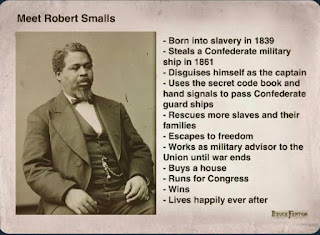Nesse Godin, a Holocaust survivor, says she made it through those dark days of human history not on her own strength or wisdom, but by the kindness of Jewish women, the women who helped her. Then she writes: “I never knew their names.” I never knew Nesse Godin’s name until a year or so ago.
I never knew Robert Small’s name until yesterday. A friend posted Robert’s story on Facebook. He was born into slavery in 1839. He was able to steal a Confederate military ship in 1861 and escape to freedom. After the war he purchased his former owner’s house in Beaufort, South Carolina. He ran for Congress and won. What a fellow! And I never knew his name.
I never knew Kirk Bloodsworth’s name until recently when I read his story in the book, Bloodsworth. Kirk Bloodsworth grew up in Cambridge, Maryland among the watermen on the Eastern Shore. He served four years in the Marine Corps. In 1984, at the age of 22, he was convicted of the rape and murder of a nine-year-old girl and sentenced to death. Kirk spent nine years in prison and two years on death row before being exonerated and pardoned in 1993 as a result of DNA testing. And I never knew his name.
Robert Small wasn’t perfect. He was accused of taking a $5,000 bribe while serving as a South Carolina senator. In 1877 he was convicted of the offense and sentenced to three years in prison (though released pending his appeal and later pardoned by the governor). Kirk Bloodsworth wasn’t a perfect guy and wandered off into a “far country” after his stint with the Marines.
I never knew their names. But I know Robert’s name and Kirk’s name now and my little life is enlarged by the knowing. Elie Wiesel writes, “In Jewish history, a name has its own history and its own memory. It connects beings with their origins.” So also, my knowing the name of another person and thus knowing a little of their story is to tread on sacred ground. It is no accident that Isaiah has God say: “I have called you by name, you are mine.” In some mysterious way when I come to know the names of Robert Small and Kirk Bloodsworth, they become a part of my history, my memory, my community. I never knew their names until just recently!
















